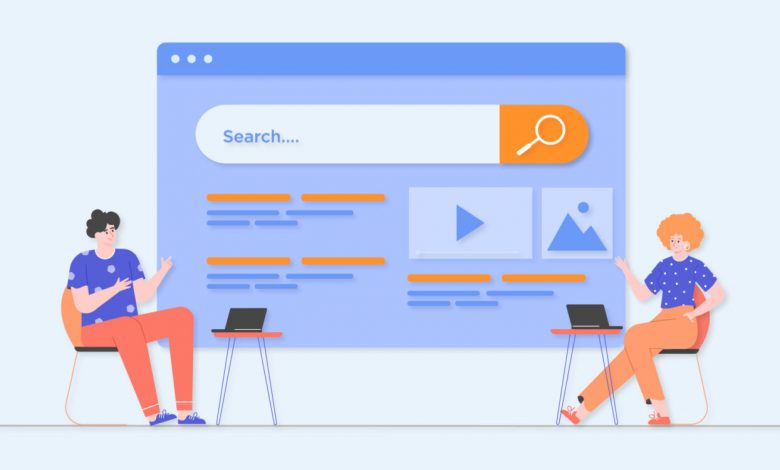How You Can Capitalize on Organic Search in Today’s Climate

Gone are the days when keyword stuffing, robotic link building, link exchange, web directories, replicated articles, and a high volume of low-quality blog entries helped your brand’s website rank.
Let’s face it: the SEO strategies that helped your company’s domain rank in 2007 are about as old as Dvd, Blackberry, Circuit City, and Radio Shack.
According to the digital marketing business Reliabilesoft, Google has a lion’s share of global search traffic, accounting for little over 91 percent of all searches. Because Microsoft Bing accounts for 2.83 percent to 12.31 percent of global searches (depending on the country), most marketers concentrate on ranking for Google rather than other search engines.
An online digital marketing course will teach how to capitalize on organic search results and rank your content. Otherwise, through this blog, you can take inspiration from these actionable steps to organically rank content for 2022 and beyond.
1. Focus on user Intent
The epidemic had an impact on human behavior all around the world, especially search behavior. Because they were unable to leave their homes, consumers relied on Google for product information rather than on-site salespeople.
As a result of the shift in customer search intent, SERPs returned more comparison and informational articles rather than product pages. Brands that recognize this trend will be able to dominate organic search.
So, how do you go about doing this? This year, Wood thinks that instructional content will be a big growth driver in organic search. Marketers should consider what topics to cover, how to arrange information, and what style of content to utilize for a specific query.
2. Quality Content all over the website
The days of utilizing low-cost writers for a penny a word to churn out a 500-word piece that was low-quality but had enough keywords jammed in to get it to rank are long gone
It’s critical to choose the right search terms to target and study the competition for those terms right now. You need to look at the length, quality, site speed, and whether or not it’s a well-known website. It’s advisable not to go for terms where the top search results are well-known websites for a new site with low domain authority.
It is recommended that you make your post 20% longer than the top search results, as long as the extra length is useful and not fluff. If you delve deeper into the subject and incorporate original research or statistics, Google will reward you with higher rankings.
Repeat the process to guarantee that you’re producing the same high-quality material across the board rather than just a few high-quality items. This method will help you improve your search engine ranking for a variety of terms. A content marketing course will help you plan your content strategy and implement them.
3. Localize your Content
Because local SEO is becoming more essential, it’s critical to optimize your site’s content for maps and local search. It has a significant impact on increasing traffic to your website. As a result, ensuring ongoing optimization is critical. The strategies listed below can assist you in ranking for local search terms:
- Solicit feedback and respond to it: Because the star rating is the most important aspect in establishing a business’s quality, authentic customer reviews are necessary.
- Create a Google Business profile and optimize it: This involves optimizing metadata and ensuring that all of your contact information is correct across the web. Both your Google Maps and Google Business Profile should include a link to your contact information or “about us” page.
- Display your company’s name, address, and phone number prominently: Your business name, address, and phone number are important to your local SEO approach. Local indications should be prominently presented on every page of your website, particularly at the bottom. Make sure these IDs are consistent across all of your pages so that search engine crawlers can connect all of the pages where they exist.”
- Create content and product pages that are tailored to each region. Its recommended to create location-specific pages for each area you serve. You should include optimized header tags on each of these pages that incorporate the search terms locals use to find the services you’re selling. These tags will assist you with your project.
4. More attention to quality rater guidelines.
While Google primarily employs search bots (artificial intelligence) to examine and rank the Internet’s millions of web pages, it has recently introduced human inspection. These individuals are known as “search quality raters.” They are real people that examine Google search results to see if the websites genuinely address the problems or questions that consumers have. Google then analyses the data to see if its main algorithm is performing as expected.
For quality rater recommendations, however, no additional optimization procedures are required. Quality raters are used as a backup to ensure that Google’s algorithm delivers the best results to its users.
Last Thoughts
It’s critical to keep an eye on Google’s core algorithm and make necessary updates to your material. When it comes to brand content, keep in mind that organic search is just one component of the jigsaw.
Google will always keep you on your toes with new updates so you need to optimize your content regularly.
Author’s Bio

Karan Shah
Founder and CEO at IIDE
Karan Shah is an Edu-preneur, Tedx speaker, Harvard alumnus specializing in eCommerce, and the founder of IIDE – The Digital School.
He is a reputed author on the topics of education, digital marketing, and Ed-techs. Over the years he has penned a plethora of articles in leading news outlets such as Entrepreneur, BusinessWorld, Education Times, and Youth Magazine to name a few.
Apart from this if you are interested to know more then visit our technology category.





